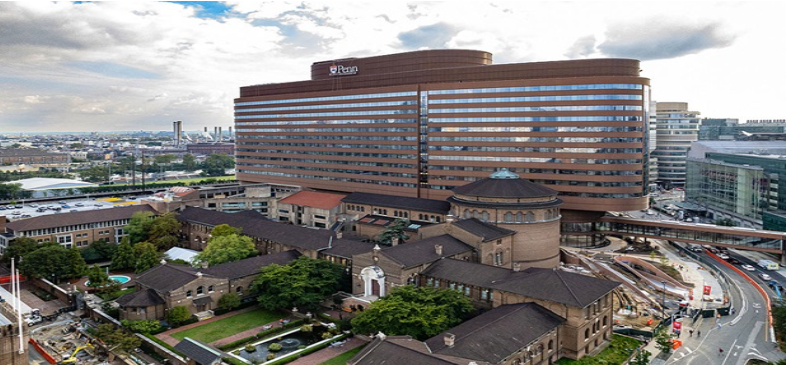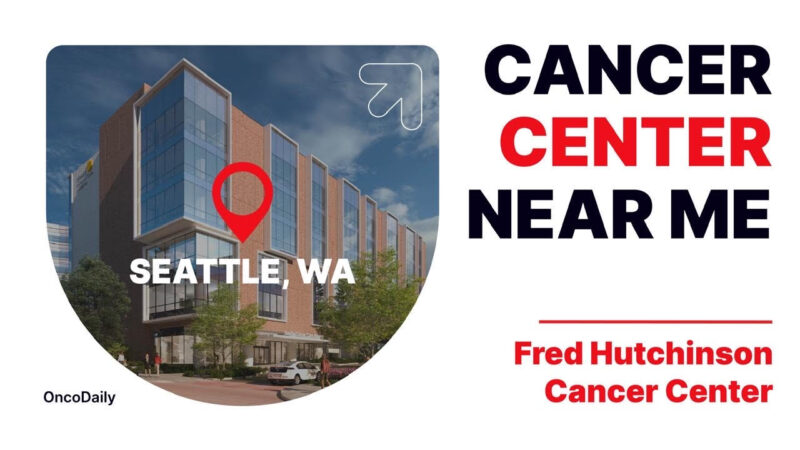Founded in 1765, Penn Medicine is the nation’s first medical school and a leading academic health system that continues to set the standard for excellence in patient care, education, and medical innovation. With a mission grounded in science and service, Penn delivers care that is compassionate, collaborative, and grounded in the latest research. At the heart of this institution lies its commitment to advancing cancer care through integrated, patient-centered approaches.
The Abramson Cancer Center, an NCI-designated Comprehensive Cancer Center, exemplifies this mission.
As the flagship cancer program within a broader network, it unites inpatient care, outpatient services, and advanced research across a wide geographic area. From Philadelphia to New Jersey, Penn Medicine provides seamless access to diagnostic, surgical, medical, and supportive oncology services. This integration is essential in today’s cancer landscape, where personalized treatments, multidisciplinary care teams, and clinical trial access are central to improving outcomes.
Penn Medicine delivers high-quality cancer care across the full spectrum, including advanced immunotherapies, precision diagnostics, and accessible community-based services.

📍 The Pavilion, Penn Medicine’s new $1.6B hospital facility in West Philadelphia, is one of the most advanced healthcare buildings in the country. Credit: https://www.pennmedicine.org/for-patients-and-visitors/penn-medicine-locations/pavilion
What Sets Penn Medicine’s Cancer Care Network Apart?
At the core of Penn Medicine’s cancer care network is the Abramson Cancer Center, a leader in research, treatment, and education. Recognized as a National Cancer Institute (NCI) Comprehensive Cancer Center, Abramson is known for its groundbreaking work in immunotherapy, genetic risk assessment, and personalized cancer care. With over 400 researchers and clinicians working in tandem, it provides comprehensive services from diagnosis through survivorship.
The Abramson Cancer Center anchors a vast regional cancer network across Pennsylvania and New Jersey, offering patients access to top-tier care closer to home. This includes:
- Chester County Hospital Cancer Center
- Penn Medicine Valley Forge
- Ann B. Barshinger Cancer Institute at Lancaster General Health
- Princeton Health Cancer Center
Each location is equipped to deliver medical oncology, radiation therapy, surgical consultations, and access to clinical trials. This decentralized model ensures that patients do not need to travel far for excellent care while still benefiting from Penn’s centralized expertise and research.
Through robust integration of inpatient and outpatient services, patients experience continuity in care. Multidisciplinary teams which include oncologists, pathologists, surgeons, radiologists, and nurse navigators, collaborate to create and monitor personalized treatment plans. These partnerships foster a seamless experience for patients and improve health outcomes across diverse populations.
What Makes Penn Medicine’s Cancer Facilities State-of-the-Art?
Penn Medicine’s cancer care is supported by thoughtfully designed, technologically advanced facilities that prioritize patient comfort, operational efficiency, and innovation.The Abramson Cancer Center at the Perelman Center for Advanced Medicine is home to the Roberts Proton Therapy Center, one of the few such centers in the world integrated into an academic medical campus. Patients receive advanced radiation oncology services alongside outpatient surgical care, chemotherapy, and access to clinical trials—all under one roof.
The Chester County Hospital Cancer Center, renovated and expanded, features two floors with 25 exam rooms, 24 infusion stations, and an upgraded USP 797/800-compliant pharmacy that ensures safe preparation of medications. The design supports a calm, spacious environment tailored to patient needs.
Penn Medicine Valley Forge provides outpatient oncology services in a welcoming environment with 18 exam rooms, a linear accelerator vault, and full laboratory services. Its two floors are structured to streamline care delivery while offering a supportive, community-based atmosphere.
At Lancaster General Health, the Ann B. Barshinger Cancer Institute spans 100,000 square feet, integrating biophilic design, healing gardens, natural light, and a layout that reflects the rhythms of patient care. Every architectural element is designed to reduce anxiety and enhance wellness.
The Princeton Health Cancer Center, a $400 million investment, features over 40 exam rooms, 30+ infusion chairs, and radiation therapy capabilities. From patient arrival to post-treatment support, the facility reflects Penn’s philosophy that healing is not only medical—it is also emotional and environmental.
These centers exemplify how design and technology can elevate care by creating spaces that are both functional and healing.
What Specialized Services Are Offered at the Abramson Cancer Center?
Penn Medicine’s cancer care network offers a robust and coordinated clinical infrastructure designed to treat the full spectrum of oncologic conditions. Within the Abramson Cancer Center, key departments include medical oncology, surgical oncology, radiation oncology, hematologic malignancies, and supportive oncology care.
Penn is also home to several nationally ranked subspecialty programs. Its Bone Marrow and Stem Cell Transplantation Program is among the most comprehensive in the country, treating patients with leukemia, lymphoma, multiple myeloma, and rare hematologic diseases. The Immunotherapy Program, birthplace of FDA-approved CAR-T cell therapies, has revolutionized care for patients with otherwise treatment-resistant cancers.
The Radiation Oncology Department, bolstered by the Roberts Proton Therapy Center, provides high-precision, image-guided therapy options, including proton beam therapy, stereotactic body radiation therapy (SBRT), and brachytherapy. These modalities reduce side effects and improve targeting of tumors, especially in pediatric and hard-to-reach cases.
In Pediatric Oncology, children benefit from a comprehensive program through Penn’s partnership with the Children’s Hospital of Philadelphia (CHOP), ensuring access to pediatric-specific clinical trials and specialists.
Genetic counseling and precision oncology services ensure patients with inherited cancer syndromes receive personalized care, including genomic tumor profiling and risk management strategies.
Multidisciplinary tumor boards convene regularly to review patient cases and determine optimal treatment paths, integrating inputs from pathology, imaging, oncology, and surgery. This model allows Penn to deliver customized, evidence-based treatment plans supported by the latest research.
Patients also gain access to one of the nation’s largest portfolios of clinical trials, ensuring they receive not only the best of today’s care but also tomorrow’s breakthroughs.
How Is Compassionate Care Delivered at the Abramson Cancer Center?
At Penn Medicine, clinical excellence is matched by a profound commitment to the patient experience. Recognizing that cancer affects every aspect of a person’s life, Penn offers a full suite of support services designed to empower and comfort patients throughout their journey.
Each center provides private infusion pods, flexible scheduling, and a care team dedicated to minimizing treatment disruption. Telemedicine options allow for virtual consultations and follow-ups, improving access for patients in rural or underserved areas.
Patients have access to oncology-certified social workers, genetic counselors, financial navigators, and survivorship coordinators who ensure that care is coordinated and comprehensive. Nutritionists and rehabilitation specialists work alongside medical teams to address the physical toll of treatment, while counselors and peer mentors offer emotional support and mental health services.Penn’s survivorship programs help patients transition from active treatment to life after cancer, providing wellness plans, long-term monitoring, and guidance on fertility, cognition, and employment.
Community engagement is also a pillar of Penn’s mission. Outreach includes bilingual health education, screening events, and mobile cancer care units, helping bridge the gap between advanced care and community need. Educational resources are provided in multiple languages to ensure inclusivity and health literacy. Ultimately, Penn’s patient-centered approach doesn’t just treat disease—it respects and uplifts the whole person.
Where Can Patients Access Penn Medicine’s Cancer Services?
Penn Medicine’s cancer network spans a wide geographical footprint, delivering high-quality care throughout southeastern Pennsylvania and New Jersey. Patients can access care at main hubs like the Perelman Center in Philadelphia, as well as regional centers in Chester County, Valley Forge, Lancaster, Princeton, Cherry Hill, Sewell, and Voorhees.
This network ensures that expert care is always within reach. Regardless of location, patients experience the same Penn standards of care, thanks to coordinated electronic medical records, shared care teams, and centralized clinical trial access. Whether patients receive chemotherapy in Cherry Hill or surgery in Philadelphia, they remain within a unified system.
To support travel needs, Penn offers transportation coordination, discounted lodging, and patient navigation services for out-of-town families. These services are particularly valuable for those receiving complex care such as transplant or proton therapy.
Penn also provides financial counseling, insurance navigation, and charity care to remove financial barriers to treatment. Dedicated patient liaisons work one-on-one with families to guide them through logistics, coverage options, and applications for aid.
Access to care at Penn is built not only on proximity, but on the promise that every patient—regardless of zip code or income—can receive exceptional, equitable care.
How Is the Abramson Cancer Center Advancing Cancer Research and Innovation?
Penn Medicine is internationally recognized for its groundbreaking cancer research. Its scientists and clinicians have led some of the most significant advances in oncology, including the development of CAR-T cell therapy, proton therapy, and genomic-guided treatment plans.
With more than 1,000 active clinical trials, patients have unparalleled access to investigational treatments and emerging therapies. Translational research bridges lab discoveries and real-world care, rapidly bringing new treatments from bench to bedside. Penn’s Center for Precision Medicine uses patient-specific genetic and molecular data to guide care. Teams collaborate across departments to tailor therapies to each tumor’s biology, reducing side effects and improving survival.
The institution is continually expanding its research footprint through new facilities, enhanced computational platforms, and partnerships with biotechnology companies and federal research agencies. Investment in AI-driven diagnostics, liquid biopsies, and tumor microenvironment research promises to unlock future cures. Through its global collaborations and commitment to equity in innovation, Penn ensures that advances benefit diverse populations. The future of cancer care at Penn is not only innovative—it’s inclusive, data-driven, and patient-centered.
You Can Also Read Cancer Center Near Me: Fred Hutchinson Cancer Center by Oncodaily

Why Does the Abramson Cancer Center Stand Out in Cancer Care Today and Tomorrow?
Penn Medicine’s cancer care network is more than a collection of facilities—it is a dynamic ecosystem committed to excellence in treatment, research, and human-centered care. From the flagship Abramson Cancer Center to community-based sites across Pennsylvania and New Jersey, Penn offers comprehensive and compassionate oncology services.
Patients benefit from the integration of clinical care, leading-edge research, and whole-person support. Multidisciplinary teams work in concert to provide therapies tailored to each individual’s needs, while continuous investment in technology and facilities ensures access to the most advanced care.
Penn’s reach extends beyond hospital walls. Its work in underserved communities, dedication to equity, and groundbreaking discoveries continue to transform cancer care for all.
If you or a loved one are facing a cancer diagnosis, Penn Medicine offers not just hope—but a proven path forward.
Learn more: www.pennmedicine.org
By Stella Ghevondyan
FAQ
What specialties is Penn Medicine known for?
Penn is internationally recognized for cancer care, cardiology, neurosurgery, transplantation, and precision medicine.
Where is Penn Medicine located?
The main campus is in Philadelphia, Pennsylvania, but the system includes hospitals and clinics throughout the region.
How do I make an appointment or get referred?
You can request an appointment online at pennmedicine.org or by calling 800-789-PENN.
Does Penn Medicine offer financial assistance?
Yes. Penn has robust financial aid and charity care programs to ensure access for all patients.
Can students shadow or apply to research at Penn?
Yes. Penn offers research fellowships, internships, and shadowing opportunities through the Perelman School of Medicine.
How does Penn Medicine support underserved populations?
Through community clinics, mobile units, bilingual services, and care coordination programs designed to address social determinants of health.


